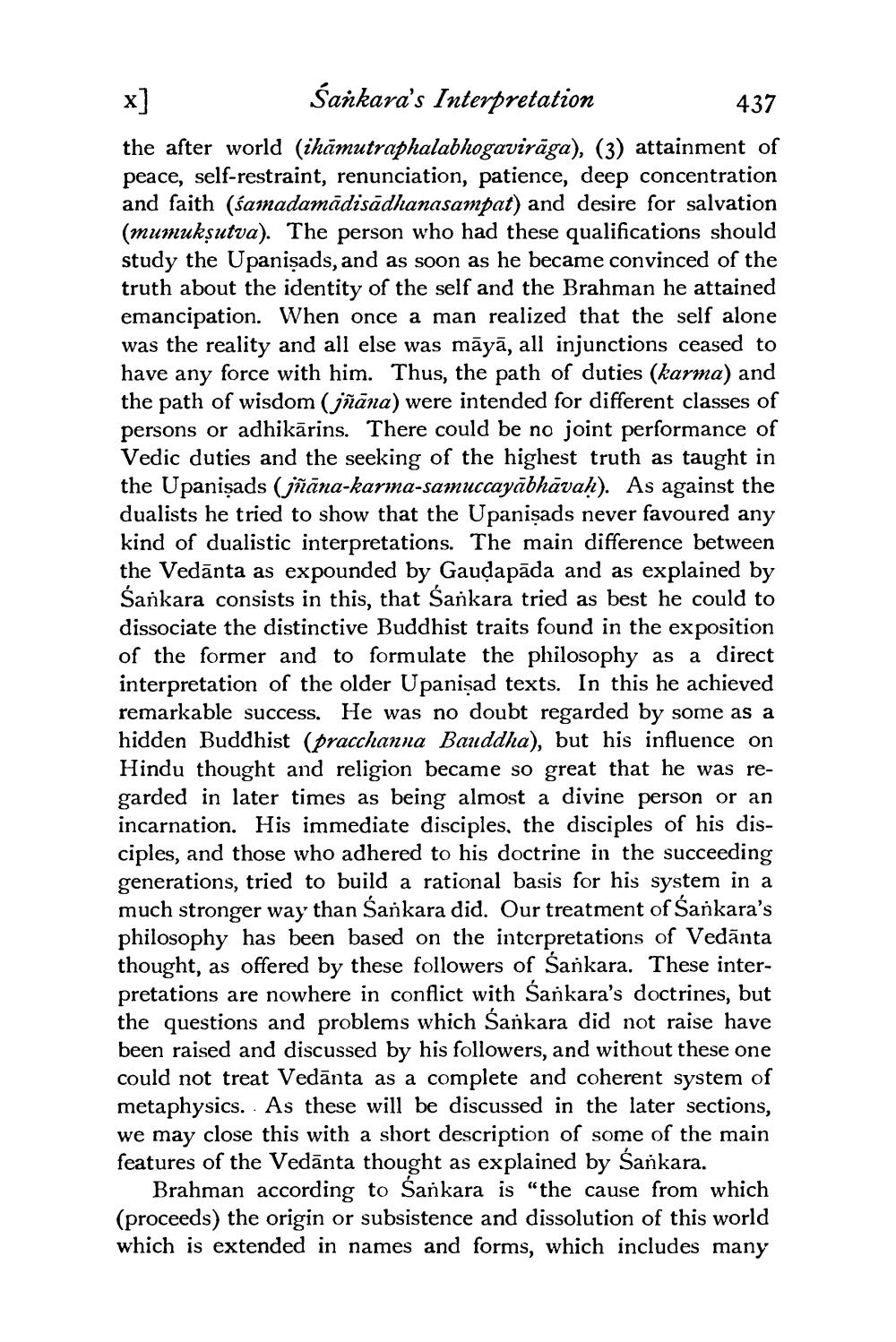________________
x]
Sankara's Interpretation
437
the after world (ihamutraphalabhogaviraga), (3) attainment of peace, self-restraint, renunciation, patience, deep concentration and faith (samadamadisādhanasampat) and desire for salvation (mumukṣutva). The person who had these qualifications should study the Upanisads, and as soon as he became convinced of the truth about the identity of the self and the Brahman he attained emancipation. When once a man realized that the self alone was the reality and all else was māyā, all injunctions ceased to have any force with him. Thus, the path of duties (karma) and the path of wisdom (jñāna) were intended for different classes of persons or adhikarins. There could be no joint performance of Vedic duties and the seeking of the highest truth as taught in the Upaniṣads (jñāna-karma-samuccayābhāvaḥ). As against the dualists he tried to show that the Upaniṣads never favoured any kind of dualistic interpretations. The main difference between the Vedanta as expounded by Gauḍapāda and as explained by Śankara consists in this, that Śankara tried as best he could to dissociate the distinctive Buddhist traits found in the exposition of the former and to formulate the philosophy as a direct interpretation of the older Upanisad texts. In this he achieved remarkable success. He was no doubt regarded by some as a hidden Buddhist (pracchanna Bauddha), but his influence on Hindu thought and religion became so great that he was regarded in later times as being almost a divine person or an incarnation. His immediate disciples, the disciples of his disciples, and those who adhered to his doctrine in the succeeding generations, tried to build a rational basis for his system in a much stronger way than Śankara did. Our treatment of Sankara's philosophy has been based on the interpretations of Vedanta thought, as offered by these followers of Sankara. These interpretations are nowhere in conflict with Sankara's doctrines, but the questions and problems which Sankara did not raise have been raised and discussed by his followers, and without these one could not treat Vedānta as a complete and coherent system of metaphysics. As these will be discussed in the later sections, we may close this with a short description of some of the main features of the Vedanta thought as explained by Sankara.
Brahman according to Sankara is "the cause from which (proceeds) the origin or subsistence and dissolution of this world which is extended in names and forms, which includes many




